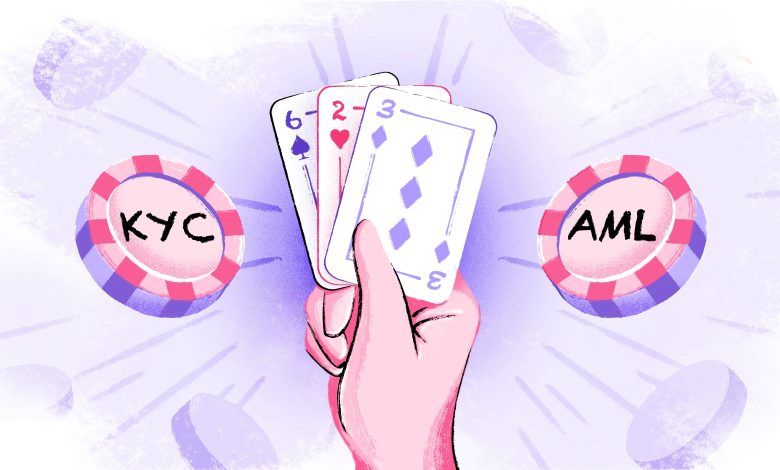KYC Technology for Online Gambling and Casinos

In the gambling industry, KYC, or “Know Your Customer,” is a necessary step for every online casino or gambling app. Adherence to these rules safeguards not just the gaming platform from financial or reputational harm, but also the other users and, eventually, the economy as a whole.
While for some, gambling can be a thrilling pastime, for others, it can be a conduit for criminal activities like fraud and identity theft. Therefore, it is crucial that gambling sites and apps adhere to AML (Anti-Money Laundering) and Know Your Customer (KYC) rules to prevent these monetary-motivated crimes.
Lucky for you, the best online betting sites in Singapore are inherently compliant with KYC for good reasons.
KYC Explained
Know Your Customer (KYC) regulations are in place to safeguard businesses and financial institutions from the risks associated with nefarious financial activity.
Customer Due Diligence (CDD) and Enhanced Due Diligence (EDD) are two terms used to describe the procedures recommended by these rules. CDD involves the identification and verification of a potential customer’s risk profile, while EDD involves the continual monitoring of a customer’s monetary activities.
Most often, Know Your Customer (KYC) procedures are implemented in accordance with broader Anti-Money Laundering (AML) laws.
Financial institutions and other companies that engage with money exchanges, such as cryptocurrency platforms or online casinos, online betting, and gambling apps, are required to apply KYC rules as a general oversight of AML legislation. However, there are exceptions to AML requirements when it comes to implementing KYC.
Implementing KYC in gambling
Money laundering, fraud, and other forms of financial crime frequently target online casinos and gambling apps. Therefore, these entertainment platforms must perform Customer Due Diligence (CDD), also known as verifying the identity of their customers and assessing the risk associated with them, before authorizing an account.
Each country has its own set of rules regarding know-your-customer checks. In the United States, for instance, online casinos and gambling applications fall under the umbrella of “financial institutions,” making them subject to the same severe Anti-Money-Laundering and Know-Your-Customer requirements as the rest of the financial institutions in the country.
If an online casino or gambling platform is found to be in violation of the law, it could face steep fines or perhaps closure. The best online betting sites in Singapore would never violate this law.
Online casinos and gambling applications have an obligation to conduct continuous monitoring, sometimes known as Enhanced Due Diligence (EDD) after an account has been created for a customer, in order to guarantee that any suspicious behavior is instantly recognized and reported to the relevant regulatory authorities.
How technology plays into this
A multi-layered identity verification service guarantees the highest degree of security and accuracy for online gaming platforms while minimizing the time and money spent on know-your-customer (KYC) processes. With improved accuracy and stricter security, casinos can focus on serving their clients with good intentions without worrying about fraud.
Some of the most cutting-edge techniques for implementing KYC in the gaming industry include mobile identity, financial inclusion, and identity verification through the use of blockchain technology.
Importance of KYC in Gambling
For gaming establishments to play a part in the fight against financial crimes including money laundering and terrorism funding, KYC compliance is essential.
In addition to preventing fraudulent activity, implementing the proper KYC rules for online casinos and gambling applications offers numerous other benefits, like giving users peace of mind and establishing the platform’s authenticity.
Each country has its own set of Know Your Customer (KYC) rules, and it is on to online casinos and gambling apps to figure out what those rules are and follow them. Confusion and ambiguity can lead to unintended noncompliance if someone doesn’t know how to locate this information or what to do next.
Finding a provider with an appropriate IDV solution, such as PXL Vision, is strongly suggested to avoid regulatory penalties and prevent crime.
Final thoughts
There are several positive outcomes that can be expected from obligatory Know Your Customer checks in the gambling industry. It demonstrates the platform’s validity and legal compliance while discouraging illegal activity and protecting both the platform and its users.
Successful businesses and prosperous economies share one thing in common: satisfied consumers. Now you can provide your consumers with a worry-free IDV solution that ensures their happiness, security, and KYC compliance. There’s a reason why you should only be choosing the best online betting sites Singapore.




